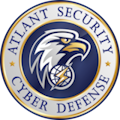Compliance with the ever-evolving landscape of cybersecurity regulations and effective risk management are two critical aspects of maintaining a robust security posture for any organization. IT security audits play a strategic role in supporting these goals by offering valuable insights into a company’s adherence to regulatory requirements and the efficacy of its risk management practices.
In this article, we will explore the significance of regulatory compliance in cybersecurity and its relationship to overall risk management efforts. We will discuss the key components of a comprehensive IT security audit that focuses on compliance and risk management evaluation, and how these audits can help organizations identify areas of improvement and develop targeted solutions. Additionally, we will share the advantages of partnering with Atlant Security for expert guidance on IT security audits and their implementation services, enabling organizations to navigate the complexities of regulatory requirements and maintain a robust risk management strategy in an increasingly connected world.
As organizations continue to embrace digital transformation, regulatory compliance and risk management are crucial for sustaining operational resilience and securing essential assets. IT security audits, backed by the expertise of Atlant Security, provide a powerful method for identifying vulnerabilities, building robust compliance frameworks, and managing the ever-present risk in today’s dynamic cybersecurity landscape.
Navigating Cybersecurity Regulations in Today’s Digital Age
The contemporary regulatory landscape is marked by a variety of cybersecurity requirements designed to protect sensitive data, preserve information security, and maintain consistent standards among organizations. Some well-known examples include:
- General Data Protection Regulation (GDPR): The European Union’s expansive data protection regulation, which applies to organizations that process the personal data of EU citizens, regardless of their geographical location.
- Health Insurance Portability and Accountability Act (HIPAA): The U.S. federal law requiring the protection of sensitive patient data held by covered entities, such as healthcare providers and insurers.
- California Consumer Privacy Act (CCPA): A comprehensive privacy law that provides California residents with greater control over their personal data collection, usage, and sharing.
- Payment Card Industry Data Security Standard (PCI DSS): A set of security standards aimed at protecting cardholder data and reducing card fraud, applicable to merchants and service providers that handle credit card transactions.
Compliance with these and other regulations is vital not only to avert potential legal repercussions but also to demonstrate an organization’s commitment to maintaining the highest levels of data security.
IT Security Audits: Enhancing Compliance and Streamlining Risk Management
An IT security audit evaluates an organization’s security infrastructure, policies, procedures, and overall effectiveness in mitigating risks and meeting regulatory standards. By focusing on both compliance and risk management efforts, these audits enable organizations to assess their current capabilities and develop targeted strategies for improvement. Essential components of a compliance-centric IT security audit include:
- Reviewing Compliance Documentation: Assessing an organization’s documented policies, procedures, and guidelines regarding data security and privacy to ensure they align with regulatory requirements.
- Analyzing Security Controls: Examining the effectiveness of an organization’s security controls, including access management, encryption, and data retention practices, in achieving compliance.
- Conducting Risk Assessments: Identifying and evaluating cybersecurity risks and vulnerabilities within the organization to determine priorities for remediation and assess the effectiveness of existing risk-mitigation efforts.
- Monitoring and Reporting: Evaluating an organization’s incident monitoring and reporting processes to ensure compliance with regulatory standards and facilitate prompt response to threats.
These components contribute to a more robust risk management strategy and a stronger overall security posture.
Empowering Organizations with Regulatory Compliance and Risk Management Insights
By incorporating compliance assessment and risk management evaluation into IT security audits, organizations can benefit in several key ways:
- Improved Regulatory Adherence: IT security audits provide insights into an organization’s compliance gaps, facilitating the development of tailored strategies for addressing these shortcomings and reducing the risk of legal penalties.
- Enhanced Risk Management: IT security audits pinpoint cybersecurity vulnerabilities and assess the effectiveness of risk-mitigation measures, allowing organizations to refine their risk management strategies and prioritize remediation efforts.
- Streamlined Processes: The insights gleaned from IT security audits can contribute to the enhancement of internal processes, including incident response planning, employee training, and policy documentation, leading to a smoother, more integrated approach to compliance and risk management.
- Strengthened Reputation: A commitment to regulatory compliance and proactive risk management demonstrates an organization’s dedication to security, leading to increased credibility and trust among customers, partners, and stakeholders.
Partnering with Atlant Security for Expert IT Security Audit Guidance
Atlant Security’s expertise in IT security audits uniquely positions the company to help organizations strengthen their security posture, enhance compliance, and develop more robust risk management strategies. Key advantages of partnering with Atlant Security include:
- Industry Knowledge: Atlant Security’s familiarity with the continuously evolving cybersecurity regulations enables organizations to remain current and compliant with the latest standards and requirements.
- Expert Analysis and Evaluation: Atlant Security’s expertise in risk management and security controls analysis allows for the identification of vulnerabilities and the implementation of targeted remediation strategies.
- Comprehensive Solutions: Atlant Security offers IT security audit consultative services and implementation support, providing a comprehensive solution to organizations seeking enhanced compliance and risk management programs.
- Ongoing Support: As cyber threats and regulatory requirements evolve, Atlant Security provides continuous support and guidance, ensuring organizations remain informed and prepared to address emerging challenges.
Securing Compliance and Effective Risk Management with Atlant Security
As digital transformation continues to reshape the business and regulatory landscape, conducting IT security audits with a focus on compliance and risk management is an essential practice for maintaining a strong security posture. By utilizing the insights and expertise of Atlant Security, organizations can develop tailored compliance frameworks, identify and address security vulnerabilities, and implement risk management strategies that align with industry best practices.
Atlant Security, a leading provider of IT security audit services, can be an essential partner for organizations striving to reinforce their commitment to compliance and manage cybersecurity risks more effectively. Our expert guidance and comprehensive consulting and implementation services empower organizations to navigate the complexities of regulatory requirements and manage cybersecurity risks proactively. Let’s help elevate your organization’s security capabilities and ensure long-term success. Contact us today to schedule an appointment!



